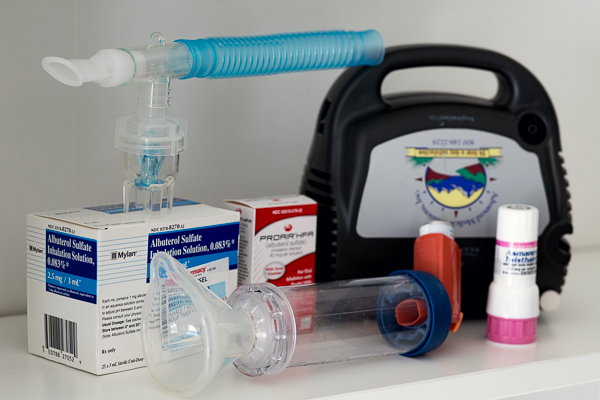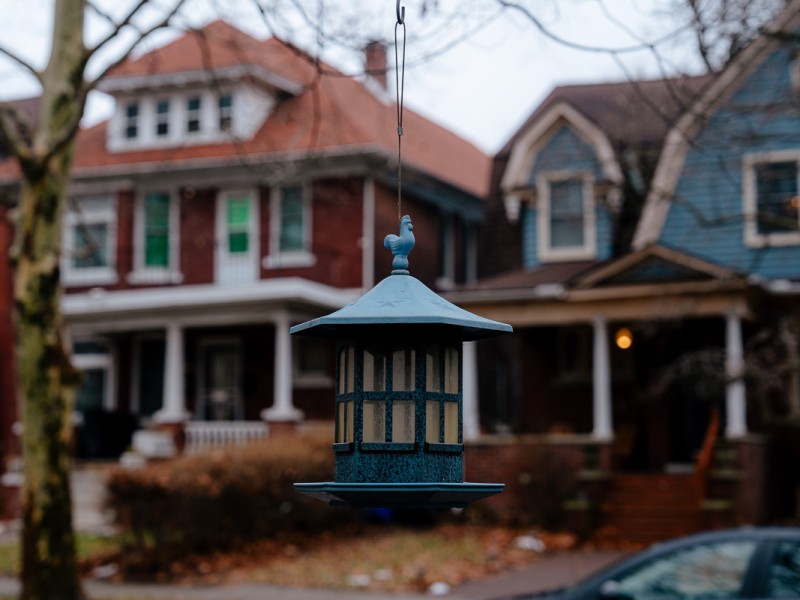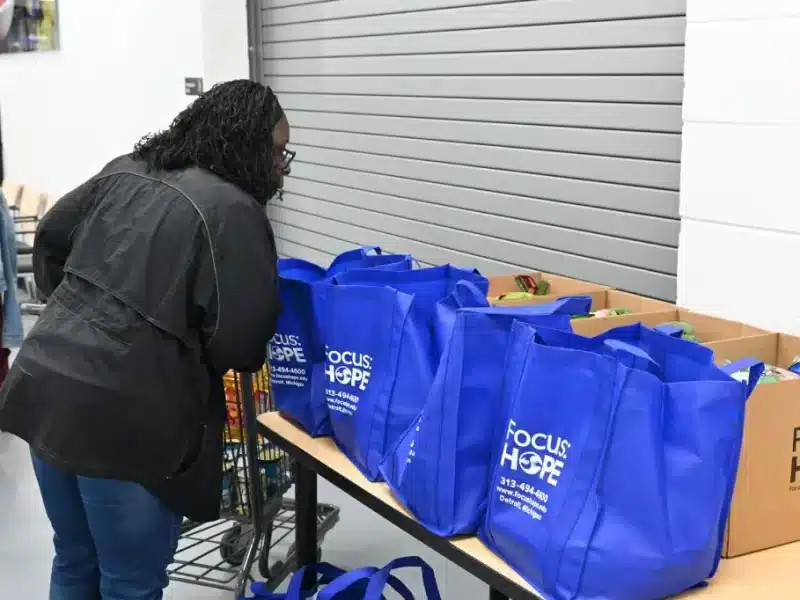A new ‘holistic’ program for Detroit asthma patients seeks more participants

In 2022, the American Lung Association ranked Detroit in 16th place out of all cities nationwide for poor air quality. Higher levels of air pollutions have resulted in increases asthma among city residents where Detroiters’ rates were 46 percent higher than Michigan residents overall between 2017 and 2019.
These figures did not escape Kathleen Slonager, who serves as executive director of the Asthma & Allergy Foundation of America’s Michigan chapter. The organization established a program called Health Equity Advancement and Leadership (HEAL), an extension of an project across 11 cities addressing asthma management in areas impacted by healthcare disparities affecting people of color.
“The HEAL Asthma program was designed to empower people to improve their health through education and lifestyle changes. It’s parallel to teaching people to fish versus just giving them a fish,” Slonager said.
The first leg of the program ran from May 2022 until last November. The next segment, which covers an expanded area, starts this month and is actively recruiting participants in Wayne, Oakland, and Macomb County.
Each participant is connected with a primary care physician and an asthma specialist who monitor patient’s progress as they move through the HEAL program. It offers community health visits virtually and in person if requested and provides a biweekly newsletter with continued learning.
Ethnic and racial minorities experience disproportionately higher incidents of asthma than other groups in Detroi, but access to medical care and treatment in the city is limited because of decreased availability. Getting an appointment with an asthma specialist can means months of waiting; there is only one in the city. And if a resident has a severe asthmatic attack, they may be waiting long minutes for an ambulance to arrive. Preemptive measures can be costly; if residents wish to be more proactive about air quality in their home, an air sensor can set them back $300.
Slonager, a registered nurse for the past 35 years, believes the program can help offset the disproportionatef lack of healthcare for city residents and gives them the care they deserve. But the biggest challenge from the first phase of the program, Slonager said, was keeping participants engaged throughout the process. Out of the 44 initial applicants, 33 were actively involved over the whole period. With this in mind, Slonager has tweaked HEAL for the next session.
The demographics of participants is Black or African American with half being on Medicaid and reporting an annual income under $25,000 per year. 87% live 5 miles from a heavy traffic area and a large majority live near a manufacturing facility.
The program takes a whole body, holistic approach and helps not only with healthcare but with social determinants of health. The Detroit YMCA offers free family memberships to promote exercise. Nutritionists counsel about healthy eating and through a collaboration with the Eastern Market, participants receive a farm fresh box twice a month. Allergy free bedding and detergent is provided. To encourage participants to hit benchmarks in the program, prizes such as water filters and air purifiers are given.
June Mack, a 71 year old Detroit resident and a program participant, has been dealing with asthma her whole life. She estimates she has visited the ER over a hundred times. With HEAL, June visited an asthma specialist for the first time in her life and learned how to better manage her symptoms.
“I went down my basement stairs and back and was able to breathe,” shared June. “I got instant relief from the new medicine that the specialist gave me. I also benefited from the specialist’s knowledge of asthma. I’ve been going to doctors all my life, but this was my first time seeing an asthma specialist.”
The worst pollutants contributing to poor air conditions in Detroit were particulates and ozone. Detroit’s particulate level came in at PM 2.5, well above safety levels. Both stems not only from coal and manufacturing but from traffic pollution. 38% of particulate pollution is due to traffic and other mobile sources such as railways and boats. The new Amazon warehouse at the old Michigan State Fairgrounds on 8 Mile sees 200 trucks per day while a just completed warehouse in northwest Detroit is expected to have four times that amount with over 850. With major thoroughfares crisscrossing not only industrialized areas, but residential neighbors, these pollutants cause health issues throughout the whole city. According to a study, a 10% increase in traffic density resulted in a 15% increase in asthma related ER visits.
Air pollution impacts sensitive populations harder such as the elderly and children. Detroit children missed 570,000 days of school in 2016 due to air pollutants and resulted in over 3,300 ER visits. In a study by the University of South California, children aged 5 to 7 who lived within 75 meters of a major road or freeway were 1.5 times more likely to have asthma symptoms than those living further away.
Inhalation of particulate pollutants and ozone can contribute to asthma along with other serious side effects such as cardiovascular damage and developmental issues. Diagnosis and treatment are critical to successful long-term management of the condition.
The HEAL initiative addresses all these issues. The project’s goal is to equip asthmatic city residents with the tools and knowledge to better manage their health condition and to increase their overall wellness.
“It was gratifying to witness the benefits of the HEAL Asthma program; like when 50% of the participants said it was difficult to control their asthma and that number dropped down to 13% just after 6 months in the program.”
Slonager encourages interested residents from Wayne, Oakland, and Macomb County apply to the next HEAL segment by clicking the link, SERVICES | mysite (aafamich.org)





